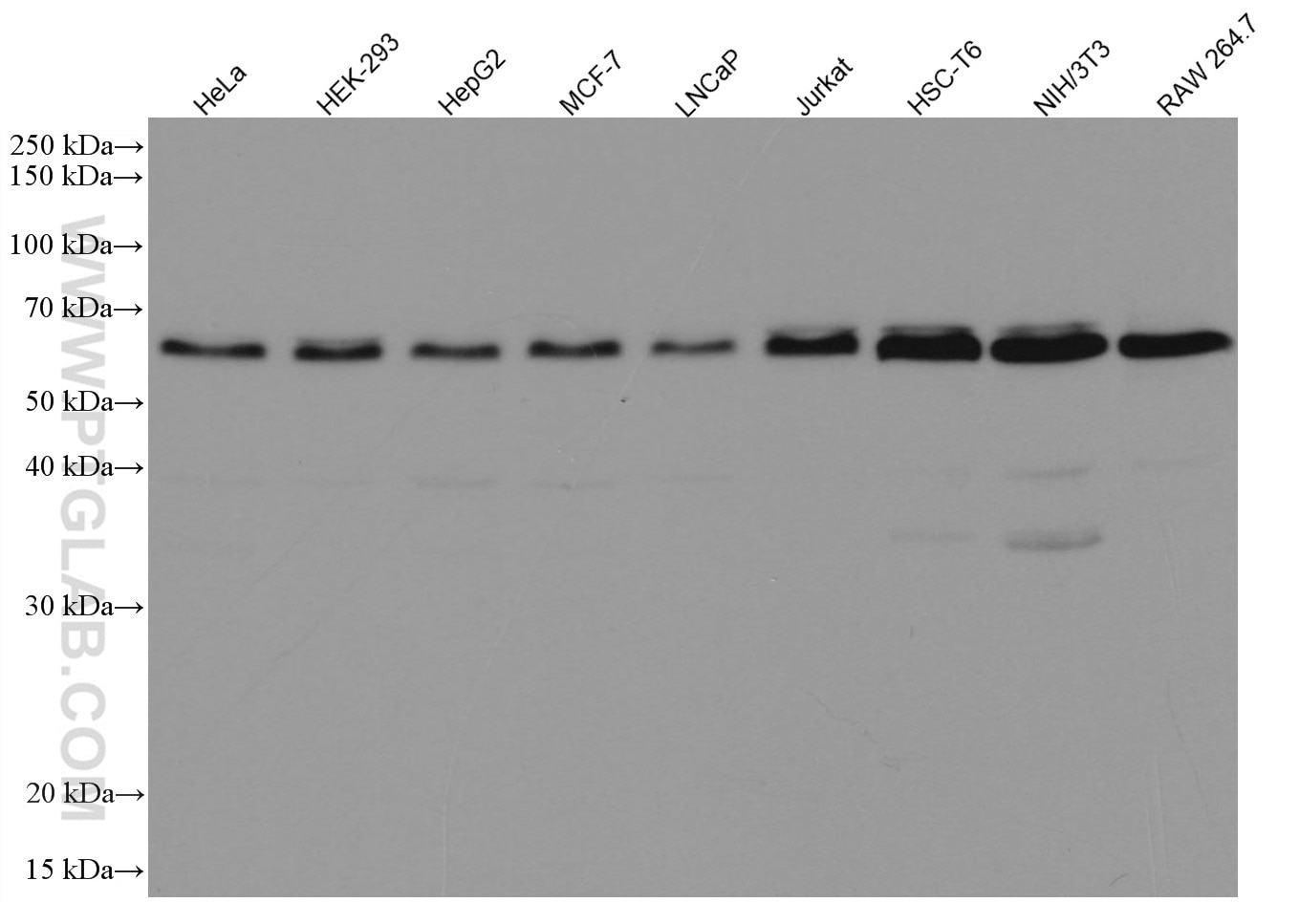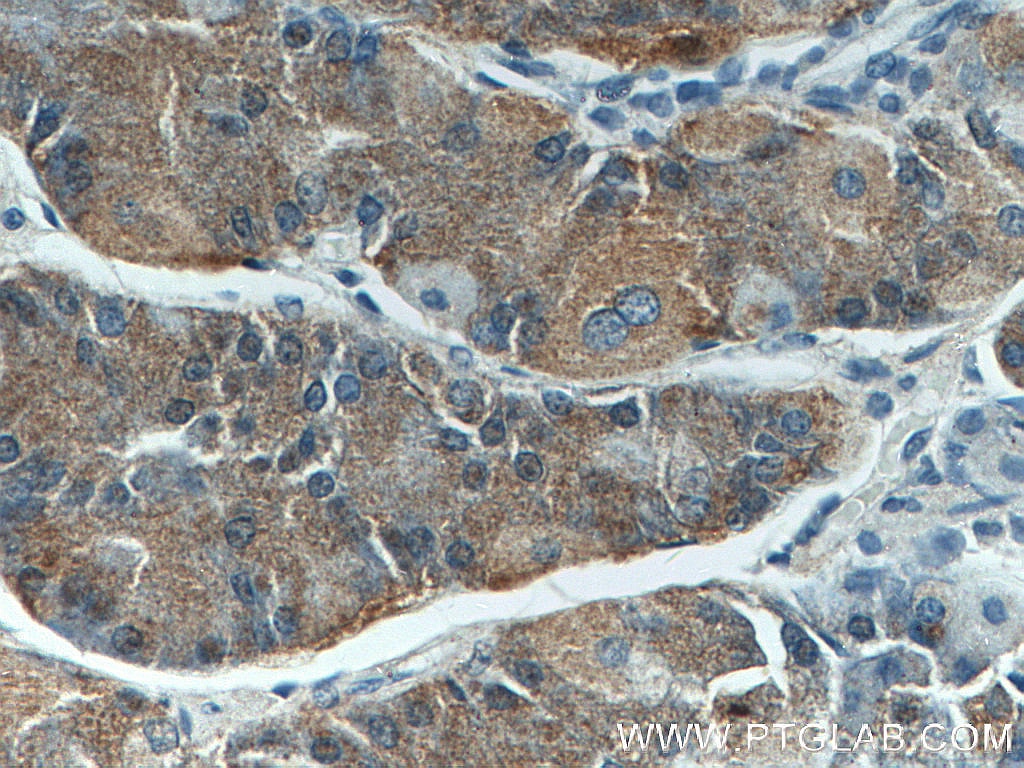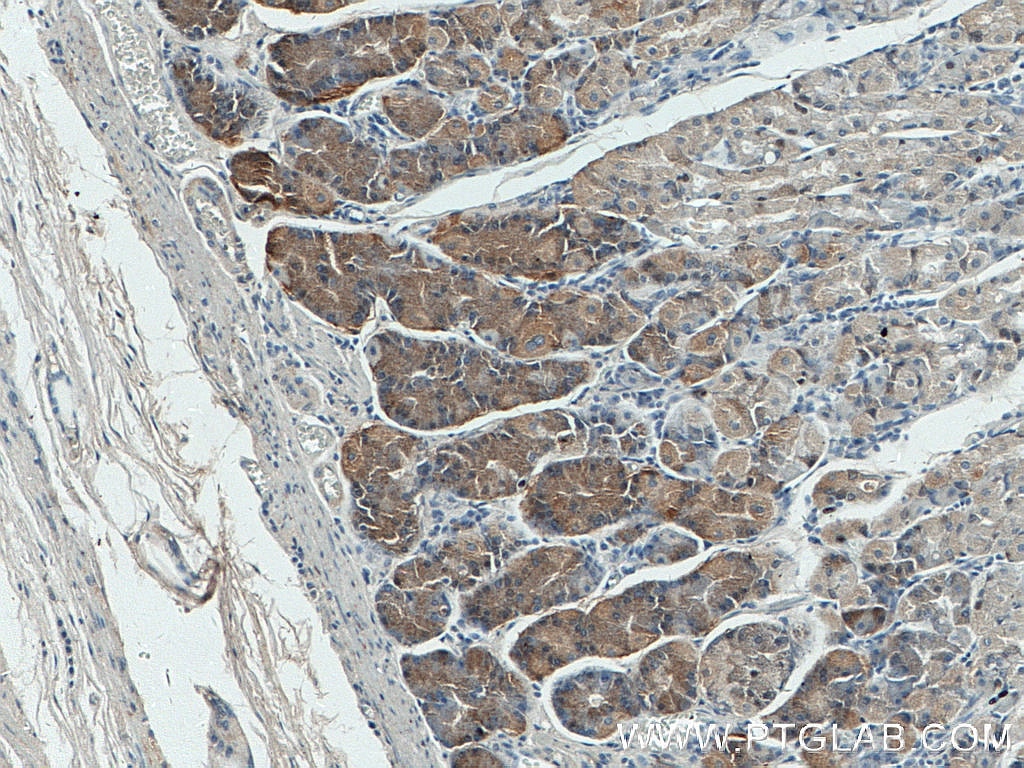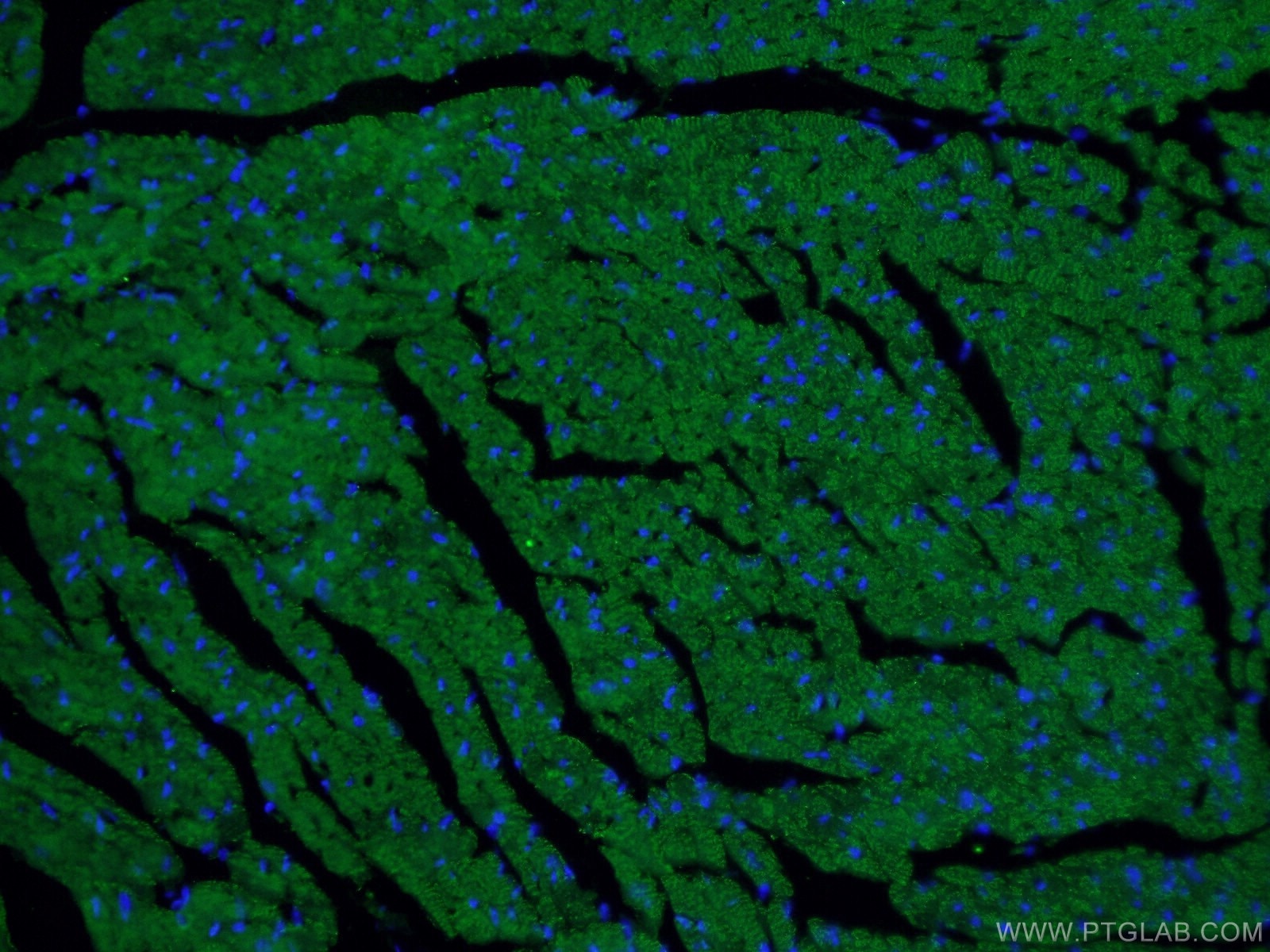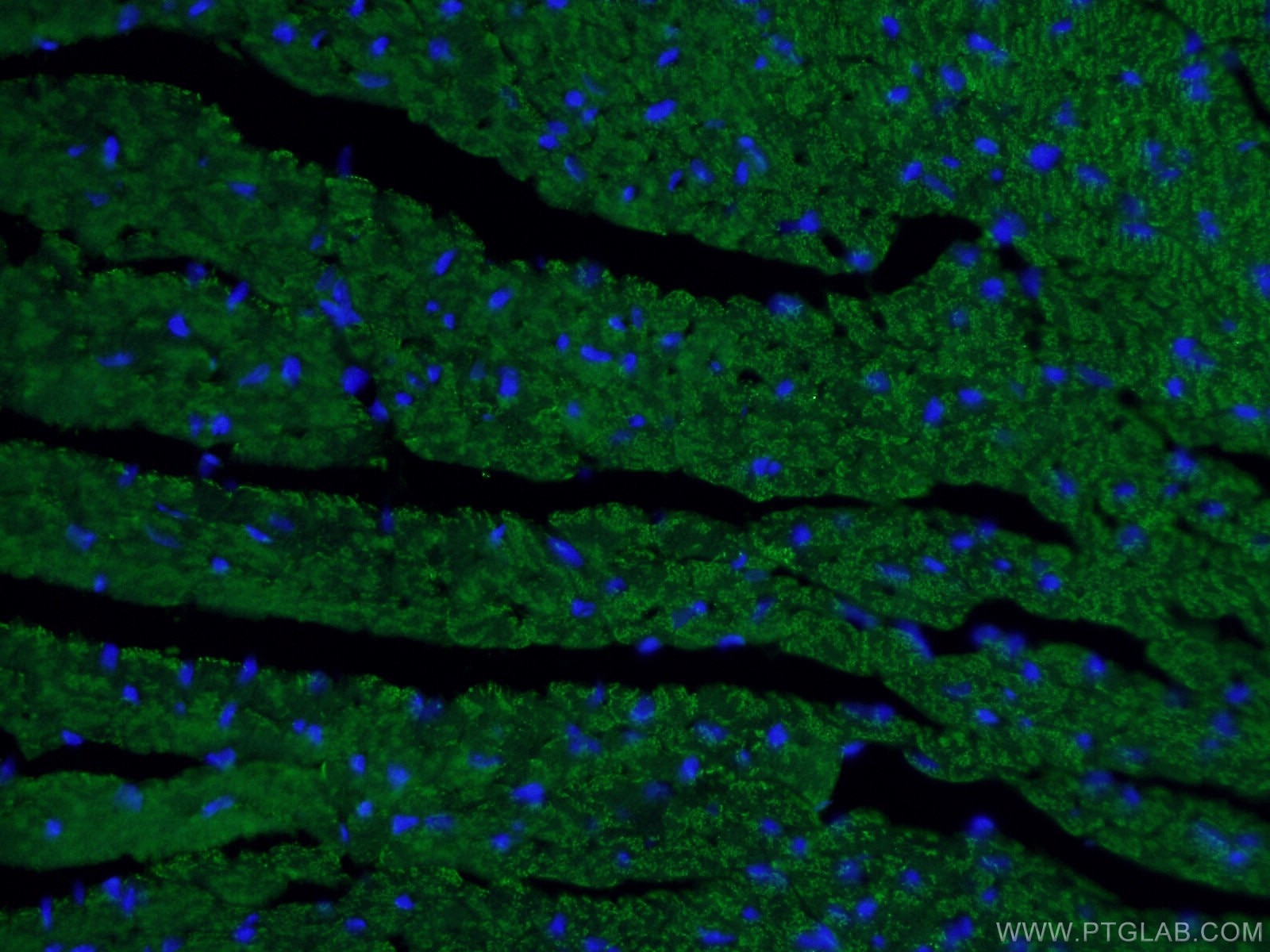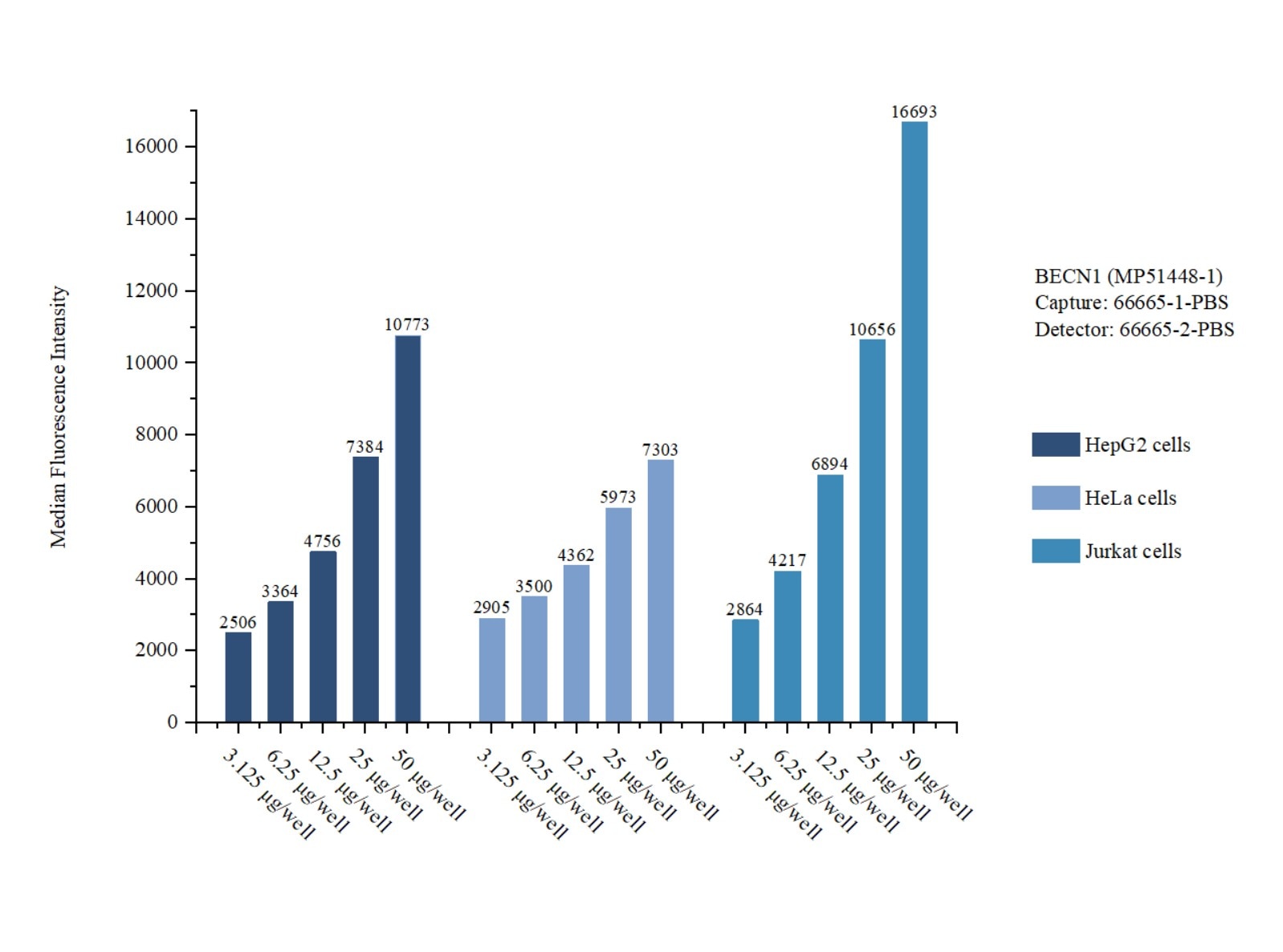Beclin 1 Monoklonaler Antikörper
Beclin 1 Monoklonal Antikörper für WB, IHC, IF-P, Cytometric bead array, Indirect ELISA
Wirt / Isotyp
Maus / IgG1
Getestete Reaktivität
human, Maus, Ratte
Anwendung
WB, IHC, IF-P, Cytometric bead array, Indirect ELISA
Konjugation
Unkonjugiert
CloneNo.
1C10C4
Kat-Nr. : 66665-1-PBS
Synonyme
Geprüfte Anwendungen
Produktinformation
66665-1-PBS bindet in WB, IHC, IF-P, Cytometric bead array, Indirect ELISA Beclin 1 und zeigt Reaktivität mit human, Maus, Ratten
| Getestete Reaktivität | human, Maus, Ratte |
| Wirt / Isotyp | Maus / IgG1 |
| Klonalität | Monoklonal |
| Typ | Antikörper |
| Immunogen | Beclin 1 fusion protein Ag1843 |
| Vollständiger Name | beclin 1, autophagy related |
| Berechnetes Molekulargewicht | 52 kDa |
| Beobachtetes Molekulargewicht | 52-60 kDa |
| GenBank-Zugangsnummer | BC010276 |
| Gene symbol | Beclin 1 |
| Gene ID (NCBI) | 8678 |
| Konjugation | Unkonjugiert |
| Form | Liquid |
| Reinigungsmethode | Protein-A-Reinigung |
| Lagerungspuffer | PBS only |
| Lagerungsbedingungen | Store at -80°C. 20ul Größen enthalten 0,1% BSA. |
Hintergrundinformationen
Beclin 1, also known as ATG6 or VPS30, interacts with various cofactors (e.g. Ambra1, Barkor (Atg14), Rubicon, or UVRAG) to regulate the lipid kinase Vps34 and promote the formation of the BECLIN1-Vps34-Vps15 complex, hence inducing autophagy. Its function (via the BH3 domain) is inhibited by Bcl-2 or Bcl-XL. Beclin 1 (BECN1) is a crucial molecule in the control of the autophagic activity, and its activity is regulated by multiple mechanisms, including the post-translational modification, protein-protein interaction, and subcellular localization. It plays a role in crosstalk between apoptosis and autophagy. It has been reported that Beclin 1 can be cleaved into fragments of 50, 37 and 35 kDa during apoptosis. It is involved in many disorders, including neurodegeneration and cancer (tumorigenesis). Beclin 1 is a mammalian tumor suppressor, and its gene is monoallelically deleted in 75% of ovarian, 50% of breast, and 40% of prostate cancers. Decreased expression of Beclin 1 has also been observed in human brain and lung tumors. The level of Beclin 1 was decreased in the affected brain regions of patients with Alzheimer's disease early in the disease process. Recent studies have also shown that gain and loss of Beclin 1 function affects the death of heart cells.
